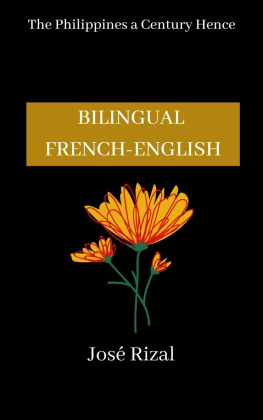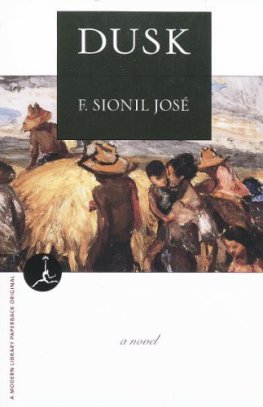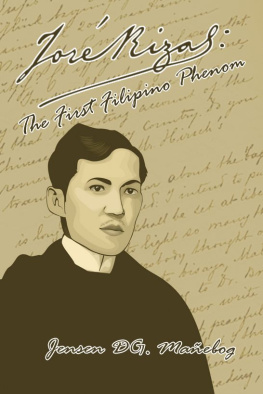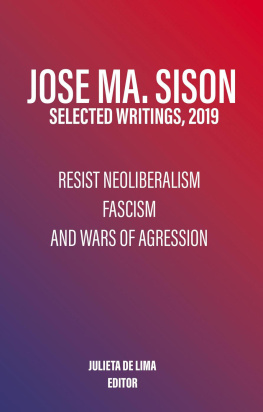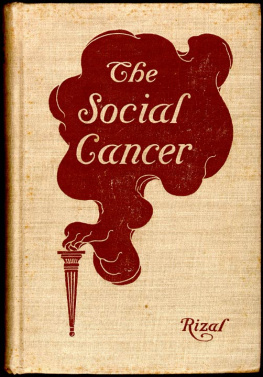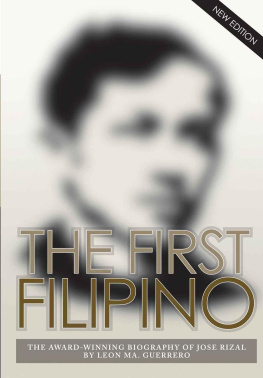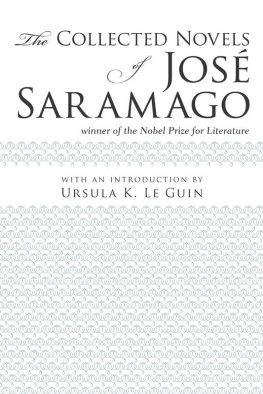As Filipinas dentro de Cien Aos , this article was originally published serially in the Filipino fortnightly review La Solidaridad , of Madrid, running through the issues from September, 1889, to January, 1890.
It supplements Rizals great novel Noli Me Tangere and its sequel El Filibusterismo, and the translation here given is fortunately by Mr. Charles Derbyshire who in his The Social Cancer and The Reign of Greed has so happily rendered into English those masterpieces of Rizal.
The reference which Doctor Rizal makes to President Harrison had in mind the grandson-of-his-grandfathers blundering, wavering policy that, because of a groundless fear of infringing the natives natural rights, put his country in the false light of wanting to share in Samoas exploitation, taking the leonine portion, too, along with Germany and England.
Robert Louis Stevenson has told the story of the unhappy condition created by that disastrous international agreement which was achieved by the dissembling diplomats of greedy Europe flattering unsophisticated America into believing that two monarchies preponderating in an alliance with a republic would be fairer than the republic acting unhampered.
In its day the scheme was acclaimed by irrational idealists as a triumph of American abnegation and an example of modern altruism. It resulted that the international agreement became a constant cause of international disagreements, as any student of history could have foretold, until, disgusted and disillusioned, the United States tardily recalled Washingtons warning against entanglements with foreign powers and became a party to a real partition, but this time playing the lambs part. England was compensated with concessions in other parts of the world, the United States was given what it already held under a cession twenty-seven years old,and Germany took the rest as her emperor had planned from the start.
There is this Philippine bearing to the incident that the same stripe of unpractical philanthropists, not discouraged at having forced the Samoans under the ungentle German rulefor their victims and not themselves suffer by their mistakes, are seeking now the neutralization by international agreement of the Archipelago for which Rizal gave his life. Their success would mean another entangling alliance for the United States, with six allies, or nine including Holland, China and Spain, if the great republic should be allowed by the diplomats of the Great Powers to invite these nonentities in world politics, with whom she would still be outvoted.
Rizals reference to America as a possible factor in the Philippines future is based upon the prediction of the German traveller Feodor Jagor, who about 1860 spent a number of months in the Islands and later published his observations, supplemented by ten years of further study in European libraries and museums, as Travels in the Philippines, to use the title of the English translation,a very poor one, by the way. Rizal read the much better Spanish version while a student in the Ateneo de Manila, from a copy supplied by Paciano Rizal Mercado who directed his younger brothers political education and transferred to Jos the hopes which had been blighted for himself by the execution of his beloved teacher, Father Burgos, in the Cavite alleged insurrection.
Jagors prophecy furnishes the explanation to Rizals public life. His policy of preparing his countrymen for industrial and commercial competition seems to have had its inspiration in this reading done when he was a youth in years but mature in fact through close contact with tragic public events as well as with sensational private sorrows.
When in Berlin, Doctor Rizal met Professor Jagor, and the distinguished geographer and his youthful but brilliant admirer became fast friends, often discussing how the progress of events was bringing true the fortune for the Philippines which the knowledge of its history and the acquaintance with its then condition had enabled the trained observer to foretell with that same certainty that the meteorologist foretells the morrows weather.
A like political acumen Rizal tried to develop in his countrymen. He republished Morgas History (first published in Mexico in 1609) to recall their past. Noli Me Tangere painted their present, and in El Filibusterismo was sketched the future which continuance upon their then course must bring. The Philippines A Century Hence suggests other possibilities, and seems to have been the initial issue in the series of ten which Rizal planned to print, one a year, to correct the misunderstanding of his previous writings which had come from their being known mainly by the extracts cited in the censors criticism.
Jos Rizal in life voiced the aspirations of his countrymen and as the different elements in his divided native land recognized that these were the essentials upon which all were agreed and that their points of difference among themselves were not vital, dissension disappeared and there came an united Philippines. Now, since his death, the fact that both continental and insular Americans look to him as their hero makes possible the hope that misunderstandings based on differences as to details may cease when Filipinos recognize that the American Government in the Philippines, properly approached, is willing to grant all that Rizal considered important, and when Americans understand that the people of the Philippines, unaccustomed to the frank discussions of democracy, would be content with so little even as Rizal asked of Spain if only there were some salve for their unwittingly wounded amor propio.
A better knowledge of the writings of Jos Rizal may accomplish this desirable consummation.

